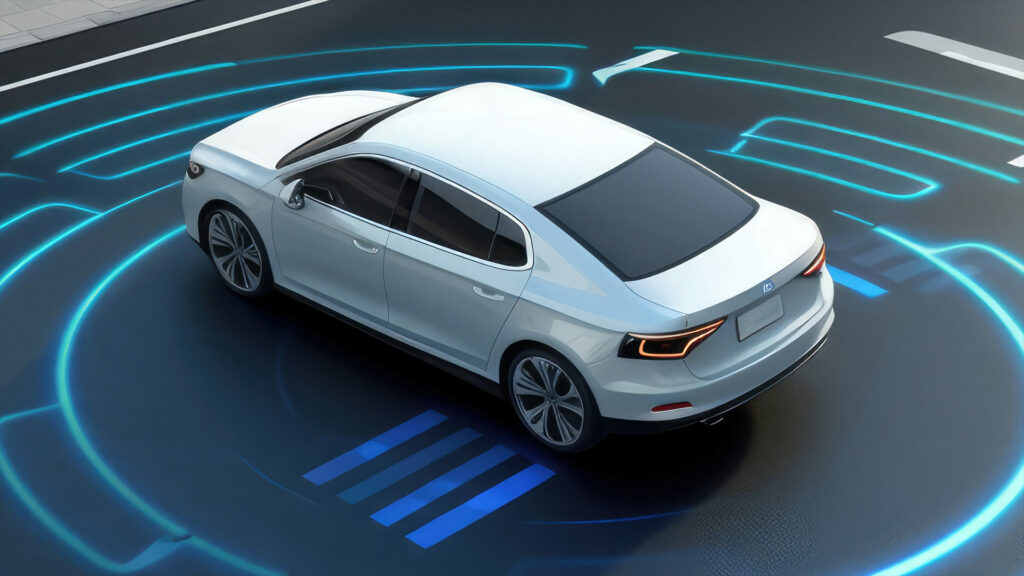In a pivotal move for the electric vehicle (EV) charging landscape, SAE International, a revered non-profit organisation dedicated to advancing mobility technologies, has endorsed Mahle's positioning system as the worldwide standard solution for wireless EV charging. The selection of Mahle's technology marks a significant leap in achieving standardisation in inductive charging, effectively putting in place the last piece of the wireless charging puzzle – that has kept this option from moving forward for almost a decade.
The key technology, a brainchild of Mahle, addresses a critical hurdle in standardisation. If successful, this could allow for a fast, comprehensive launch for commercial wireless charging – revolutionising battery charging for electric and hybrid vehicles. This recognition by a body like SAE International, underscores Mahle's prowess in electrification and sets a compelling momentum for the future of e-mobility, as highlighted by Arnd Franz, Chairman of the Mahle Management Board and CEO.
We've all used wireless chargers for our mobile phones, which means that we're all aware of just how important the physical position of the device – directly above the charger – can be.
There are a number of markets that could gain an advantage from this kind of innovation. The potential benefits for disabled drivers are clear.
Mahle's Differential Inductive Positioning System (DIPS) represents a paradigm shift in e-mobility. Leveraging a magnetic field, the system seamlessly aligns an EV above the charging coil embedded in the floor, ensuring a reliable and precise connection. The system's innovation lies in its ability to automatically establish a connection as the vehicle approaches, streamlining the charging process without requiring driver intervention. Even in challenging conditions like snow cover or wet surfaces, the Mahle positioning system excels, ensuring a consistent and hassle-free charging experience.
Standardisation is crucial for wireless EV charging, encompassing both infrastructure and vehicle components. Mahle's commitment to accessibility via a fair and non-discriminatory license model (FRAND) ensures compatibility across manufacturers, empowering both vehicle manufacturers and infrastructure providers to deliver universally compatible solutions to the market.
Furthermore, Mahle's system promises future mobile applications, including the tantalising prospect of charging EVs via induction coils while in motion—an innovation achieved collaboratively with Electreon Wireless.
In the realm of charging infrastructure, Mahle has long championed wireless charging as a promising alternative for electric vehicles. Dr Harald Straky, Head of Corporate Research and Advanced Engineering at Mahle, underscores the pivotal partnerships with Siemens and Witricity, fortifying their efforts in developing a holistic charging infrastructure and automotive engineering system.
SAE International, boasting a membership of over 128,000 engineers and technology experts across aerospace, automotive, and commercial vehicle industries, plays a pivotal role in setting global technology standards, including the standardisation of the vehicle identification number.
Established in 1920, Mahle stands as a premier global development partner and supplier to the automotive industry, catering to both passenger cars and commercial vehicles. Their relentless pursuit of climate-neutral mobility encompasses strategic focuses on e-mobility, thermal management, and other technological domains aimed at reducing CO2 emissions, including fuel cells and highly efficient, clean combustion engines running on synthetic fuels or hydrogen. Notably, Mahle components adorn one in every two vehicles worldwide, underscoring their pervasive influence in the automotive realm.
With sales surpassing €12 billion in 2022, Mahle operates across 152 production sites, backed by approximately 72,000 employees distributed across 30 countries, including 12 major research and development centres.
In addition to inductive charging, Mahle has also been working on battery technologies that could allow for ‘fast as petrol‘ fill ups.
